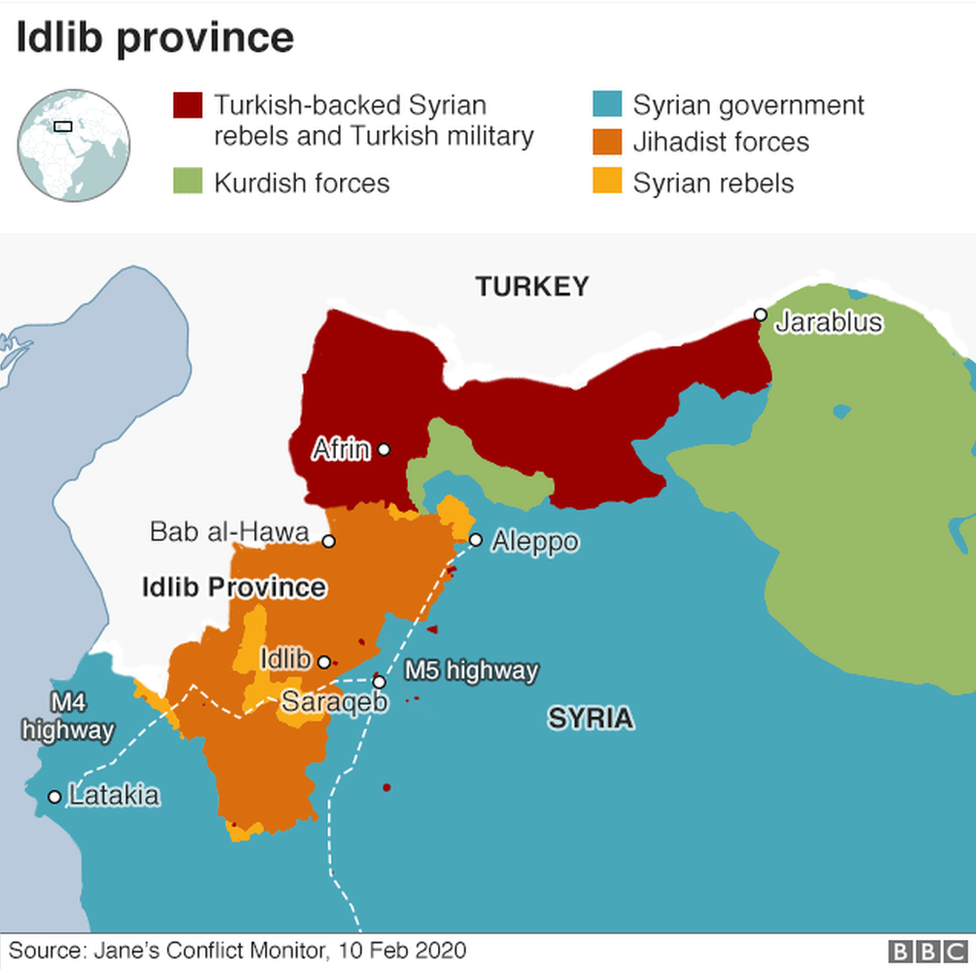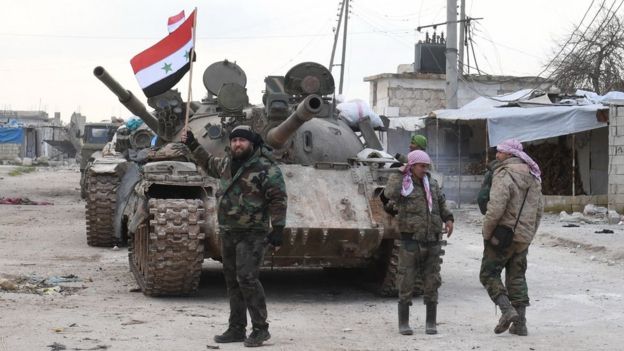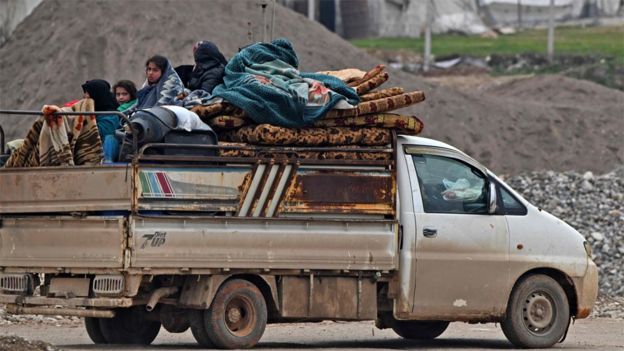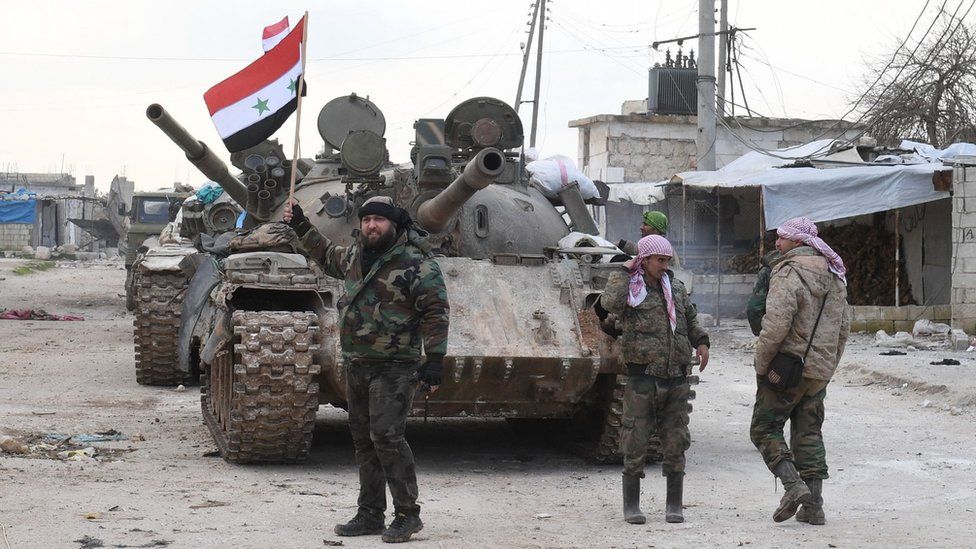(UTV|Syrian civil war) – Turkey’s president has warned the Syrian government that it will “pay a very, very heavy price” for attacks on Turkish soldiers in north-west Syria.
Five troops were killed in opposition-held Idlib province on Monday, as the Syrian army continued an offensive.
Turkish forces struck dozens of targets in response, but President Recep Tayyip Erdogan said: “It will continue.”
Meanwhile, Syrian soldiers came close to regaining full control of the country’s main north-south highway.
The Syrian Observatory for Human Rights (SOHR), a UK-based monitoring group, reported on Tuesday morning that they had driven rebel and jihadist fighters from the last section of the M5 that they held just west of the city of Aleppo.
However, there was no confirmation from the army or state media, and clashes were reportedly ongoing along parts of the highway on Tuesday afternoon.
The government has not controlled the entire M5 highway, which connects Aleppo with the capital Damascus and the border with Jordan, since 2012.
Also on Tuesday, a government helicopter was reportedly shot down near the village of Nayrab, south-east of the opposition-held city of Idlib, killing its crew. Videos appeared to show the helicopter on fire before it plummeted to the ground.
And 12 civilians, six of them children, were killed and 30 were wounded in air strikes on the Sinaa and Jalaa areas of Idlib city, according to the SOHR.

Turkey, a backer of the opposition, has sent troops to Idlib under agreements with the Syrian government’s allies Russia and Iran – the 2017 Astana and 2018 Sochi accords – that sought to de-escalate hostilities.
So far this month, Syrian army artillery fire has killed 12 Turkish military personnel and one civilian contractor.
The Turkish defence ministry said Turkish forces responded to Monday’s attack by hitting 115 Syrian government targets and “neutralising” 101 soldiers. However, the Syrian army did not report any casualties.
In a speech in Ankara on Tuesday, President Erdogan said: “We gave the necessary responses to the Syrian side at the highest level. Especially in Idlib, they got what they deserved. But this is not enough. It will continue.”
“The more they attack our soldiers, the heavier price they will pay. We will share these steps with the public tomorrow,” he added.

Turkey’s state news agency said a fresh convoy of military vehicles and commandos had been sent to Idlib to reinforce Turkish positions there, adding to the hundreds of tanks and thousands of soldiers reportedly deployed last week.
The Syrian army later said Turkey was “escalating acts of aggression by targeting populated areas to help terrorists” and that it would respond to attacks.
Meanwhile, Russia called for the de-escalation agreements to be implemented and warned it considered unacceptable “any terrorist activity directed against the Syrian armed forces and Russian military facilities”.

The Syrian army has said its soldiers, who have been supported by Iran-backed militiamen and Russian air strikes, have recaptured more than 600 sq km (231 sq miles) of territory and “liberated” dozens of towns and villages in recent days.
At least 373 civilians have been killed and 689,000 others have fled their homes since the offensive began in December, according to the UN.
“This is, from our initial analysis, the largest number of people displaced in a single period since the Syrian crisis began almost nine years ago,” a spokesman of the UN Office for the Co-ordination of Humanitarian Affairs said on Tuesday.
The vast majority of displaced people are moving north and west, towards areas near the Turkish border that are already overcrowded and where there is a shortage of adequate shelter. Many have been forced to camp on farmland with no infrastructure in harsh winter conditions.
Médecins Sans Frontières warned that an important number of hospitals had been hit and either partially or fully destroyed in the past few months, meaning that wounded people were struggling to even access health facilities. (Courtesy – BBC)

